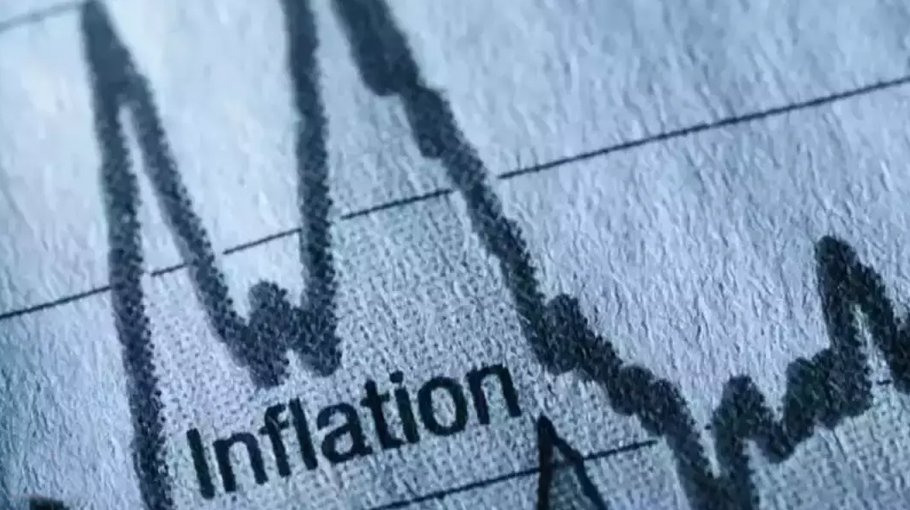Inflation may soon peak in the grocery aisle
Groceries aren’t getting cheaper anytime soon, but companies are pointing to fewer price rises this year

It's been one step forward, two steps back on inflation lately. While there are signs of easing on both sides of the Atlantic, it remains stubbornly high, indicating that the path to stable prices may not be straightforward.
Yet we can take some comfort in the unlikeliest of places — the grocery aisle. Food retailers and consumer-goods groups are pointing to fewer price rises during the course of this year.
The branded manufacturers, including Nestle SA, Unilever Plc, Coca-Cola Co., PepsiCo Inc. and Kraft Heinz Co., have enjoyed the best sales growth in a decade, thanks to the inflation they have managed to pass onto consumers. But the growing consensus is that while companies aren't done raising prices, the elevation is likely to moderate in the second half.
That doesn't mean groceries will get cheaper any time soon, but hikes in cheese and cat food likely won't be as steep as in 2022. Good news for struggling shoppers and central bankers.
For a start, the cost of the commodities and raw materials that go into food and personal-care products is starting to come down.
The price of coffee has fallen from its 2022 high, while that of some grains has weakened also. Similarly, vegetable and palm oil prices are past their peaks of last year. And energy costs, which not only affect food production but also items such as cardboard and glass, have fallen, too.
These drops won't appear on shelves instantly, of course. As with price increases, there tends to be a lag.
Nestle Chief Executive Officer Mark Schneider said the company usually strikes deals for ingredients in advance of their delivery. So, declines in commodity and energy costs likely won't be reflected in what it had already paid. Meanwhile, some of the price rises it put through late last year have only come into effect in the first quarter of 2023.
Suppliers may be prepared to fund more special offers
in the meantime — think, short-term promotions to make
products more affordable and turbocharge sales. A step-up
in deals will likely be the first sign that prices have peaked
Although commodities may be going in the right direction, wage settlements are the next big hurdle. Most pay levels for corporate staff are agreed at the start of the year, so that is another source of pressure on margins.
Indeed, one of the reasons why food prices remain stubbornly high is that many consumer-goods groups have not yet recovered all of the profit they lost from their own costs escalating. Unilever, for example, estimates that it has only passed on about three-quarters of the inflation it incurred. More hikes are needed to repair them fully.
Grocers disagree. John Allan, chairman of Tesco Plc, Britain's biggest retailer, said recently that some suppliers were raising prices more than necessary. Alexandre Bompard, CEO of French grocer Carrefour SA, told Le Figaro that manufacturers were asking for "crazy" price increases. It's true that even with spikes in costs over the past year, consumer-goods companies' margins dwarf those of supermarkets.
Manufacturers reject such criticism, pointing to the contraction in their profits over the past two years.
But as the two sides clash over the next round of increases — negotiations are currently taking place in Europe — there could be a little more give and take.
Consumers have already been buying less and trading down to supermarkets' private labels. The amount of goods sold may soon fall steeply. Neither manufacturers nor supermarkets want this to happen. Unilever said it expected to see the pressure on shopping baskets abate as price increases moderated.
Significant sticker shock last year and some companies getting closer to recovering their own inflation may explain why Pepsi, Kraft Heinz and Conagra Brands Inc. may be close to pausing their price rises. But the big brands will be reluctant to go so far as lowering them. After all, there are risks from the ongoing war in Ukraine, as well as China's reopening driving up demand for commodities.
Suppliers may be prepared to fund more special offers in the meantime — think, short-term promotions to make products more affordable and turbocharge sales. A step-up in deals will likely be the first sign that prices have peaked.
But let's not forget that a little inflation can be helpful for manufacturers and retailers alike. Consumers take on a mindset of paying more, making it easier for companies to push through more expensive products. As for supermarkets, higher prices boosts the value of sales before they even open their doors.
When inflation is more modest, or there is deflation, they must sell more tins of beans or loaves of bread to get the same money through the till. Amid the ferociously competitive food industry, that's when the hard work really starts.
Andrea Felsted is a Bloomberg Opinion columnist covering consumer goods and the retail industry. Previously, she was a reporter for the Financial Times. @AndreaFelsted



